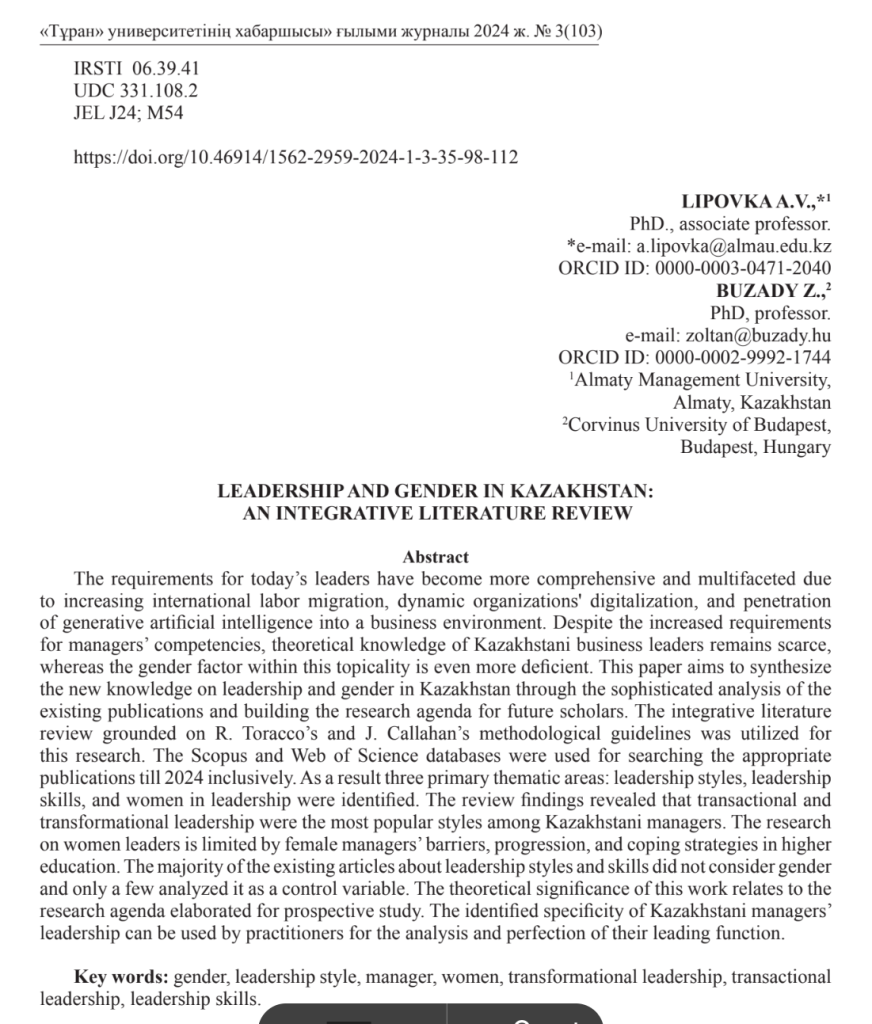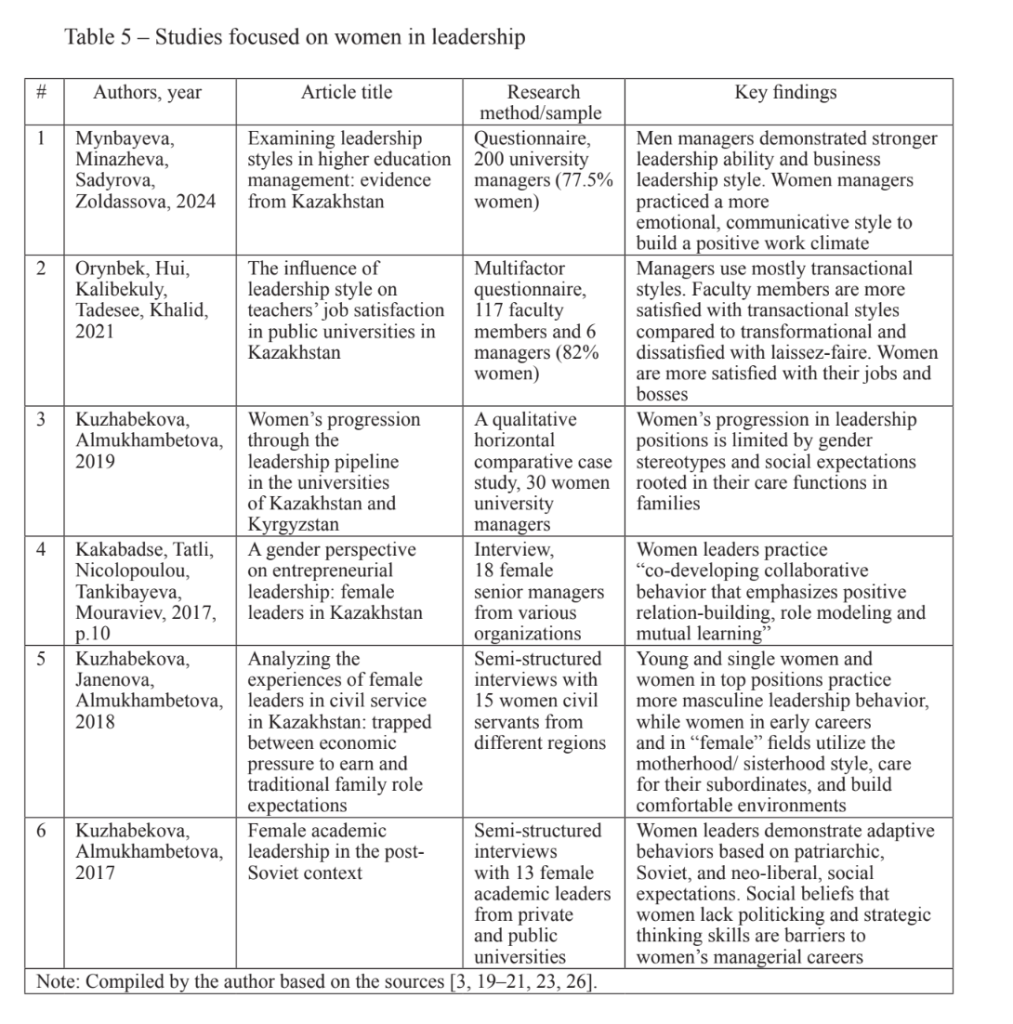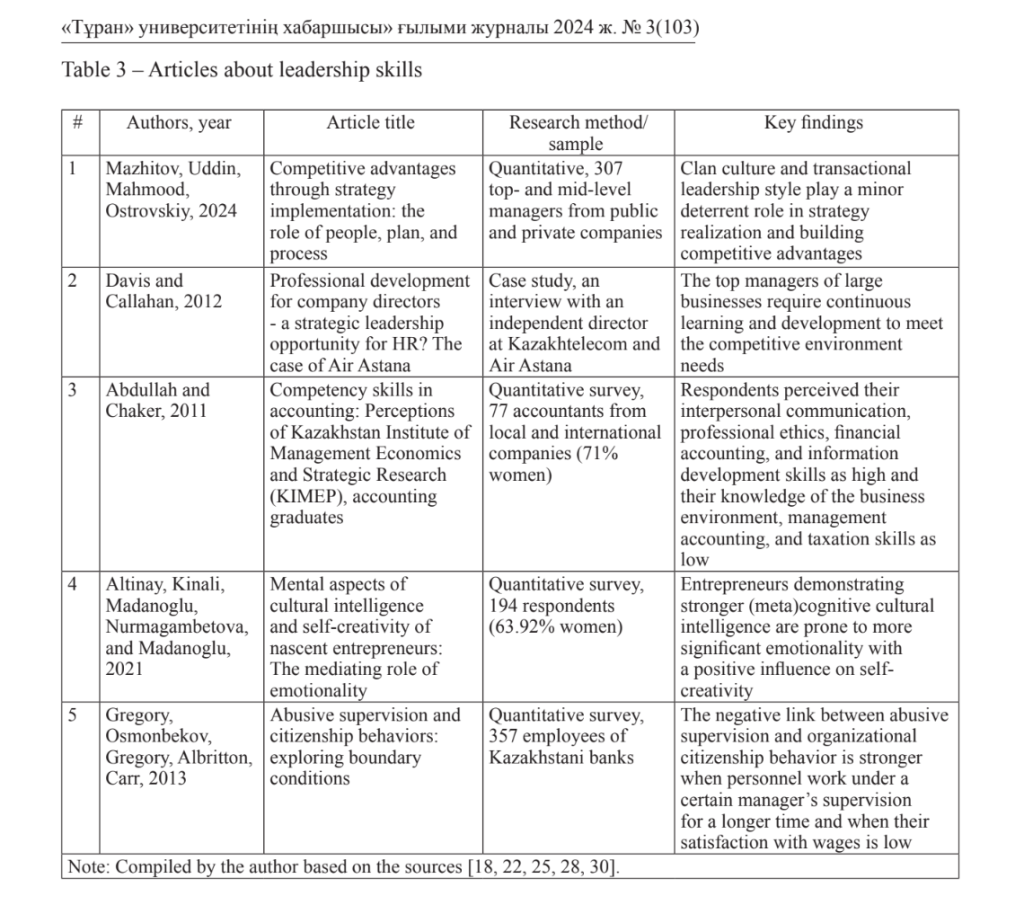By: Lipovka A.V., PhD., associate professor, AlmaU, Kazakhstan (a.lipovka@almau.edu.kz) ORCID ID: 0000-0003-0471-2040 and
Buzady Z., PhD, associate professor (zoltan@buzady.hu) ORCID ID: 0000-0002-9992-1744
In: “Turan” University Scientific Journal, 2024. No. 3(103)
DOI: https://doi.org/10.46914/1562-2959-2024-1-3-35-98-112
Abstract
The requirements for today’s leaders have become more comprehensive and multifaceted due to increasing international labor migration, dynamic organizations’ digitalization, and penetration of generative artificial intelligence into a business environment. Despite the increased requirements for managers’ competencies, theoretical knowledge of Kazakhstani business leaders remains scarce, whereas the gender factor within this topicality is even more deficient. This paper aims to synthesize the new knowledge on leadership and gender in Kazakhstan through the sophisticated analysis of the existing publications and building the research agenda for future scholars. The integrative literature review grounded on R. Toracco’s and J. Callahan’s methodological guidelines was utilized for this research. The Scopus and Web of Science databases were used for searching the appropriate publications till 2024 inclusively. As a result, three primary thematic areas: leadership styles, leadership skills, and women in leadership were identified. The review findings revealed that transactional and transformational leadership were the most popular styles among Kazakhstani managers. The research on women leaders is limited by female managers’ barriers, progression, and coping strategies in higher education. The majority of the existing articles about leadership styles and skills did not consider gender and only a few analyzed it as a control variable. The theoretical significance of this work relates to the research agenda elaborated for prospective study. The identified specificity of Kazakhstani managers’ leadership can be used by practitioners for the analysis and perfection of their leading function.
Keywords:
gender, leadership style, manager, women, transformational leadership, transactional leadership, leadership skills, flow leadership



Full article here: https://vestnik.turan-edu.kz/jour/article/view/4247/1745
Full list of ALL our publications here: https://flowleadership.org/publications-on-leadership-development-and-management-skills
